Great escapes: The National Trust's most beautiful remote holiday homes
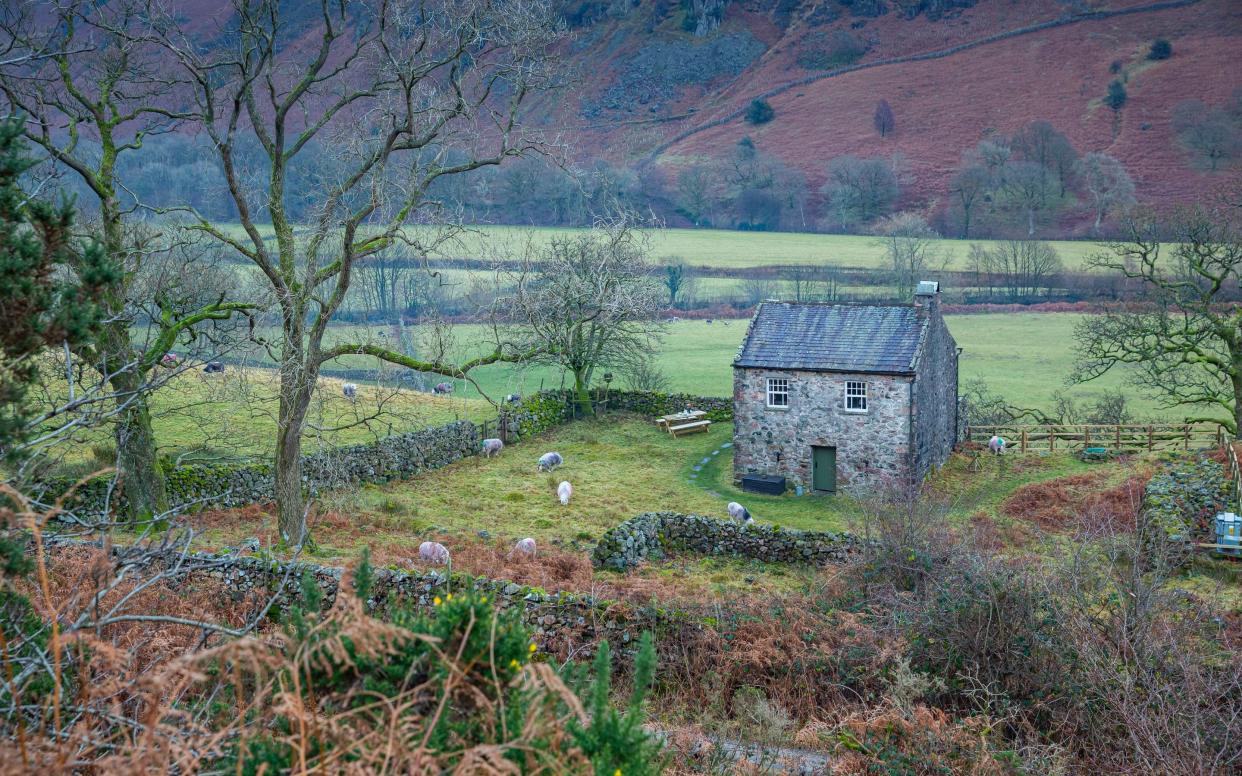
There is hope that self-catering stays will reopen by April, with Welsh First Minister Mark Drakeford saying such holidays may be possible over the Easter period. Given that he has been among the most cautious of the UK leaders when it comes to Covid restrictions, his comments bode well for the rest of the country. So start planning your post-lockdown escape at one of these isolated beauties.
Longstone Cottage, Mottistone Estate, Isle of Wight
You’ll find this pretty stone cottage tucked into a remote crease in the Isle of Wight’s Mottistone Down, a grassland-carpeted Site of Special Scientific Interest. The off-the-grid property is ideal for anyone craving a digital detox – solar panels provide enough energy for the cottage’s lights, and the fridge and cooker are gas-powered. It’s ridiculously cosy, with a log burner in the living room and a beautiful garden overlooking an ancient Neolithic monument. The lack of artificial light makes this a brilliant stargazing spot and nearby Brook Beach is a great place for solitary fossil-hunting forays. A 40-minute walk north along the coastline will take you to Compton Bay, another great spot for finding prehistoric relics.
See nationaltrust.org.uk/holidays/longstone-cottage-isle-of-wight
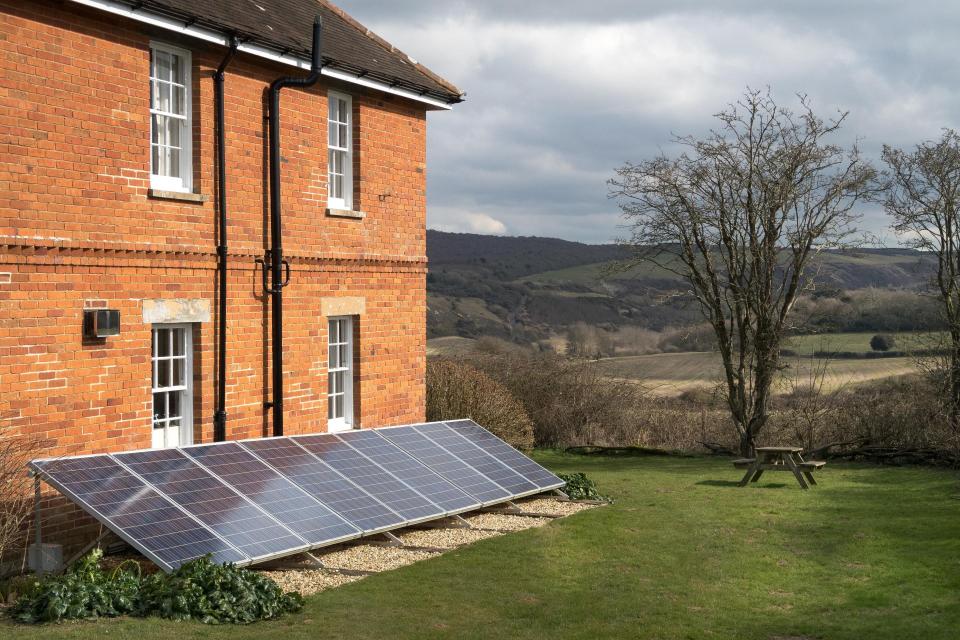
Bird How, Holmrook, Cumbria
Feeling misanthropic? Other people are rare in this particular part of Cumbria – the wonderfully remote Eskdale Valley. Bird How is a squat stone cottage at the end of a twisting farm track, but don’t be fooled by the property’s origins as a cow barn – step inside and you’ll find two bedrooms (one twin and one with bunkbeds) and the cosiest living room we’ve clapped eyes on, thanks to its huge fireplace and fantastic views over the blustery Cumbrian moorland. We suggest a lung-busting hike up England’s steepest road (the twisting, zig-zagging Hardknott Pass) as a warm-up for a march to the top of Scafell Pike – a lesser-known route to the summit starts just outside the cottage.
See nationaltrust.org.uk/holidays/bird-how-lake-district
Wireless Cottage, Helston, Cornwall
The vast expanse of nothingness surrounding this Grade II-listed clifftop cabin made it the perfect place to conduct ground-breaking experiments relating to wireless communication, which is precisely why scientist Guglielmo Marconi built the Grade II-listed, one-bedroom retreat here in 1900. Stretch your legs on solitary strolls along the clifftop or hunker down in the homely, wood-panelled interior and watch the local rabbits bounce across the landscape beyond. It’s a fantastic spot for photographers, just a few metres from sheer cliffs – perch near the edge to watch spectacular sunsets and swooping acrobatic displays courtesy of the local herring gulls.
See nationaltrust.org.uk/holidays/wireless-cottage-cornwall
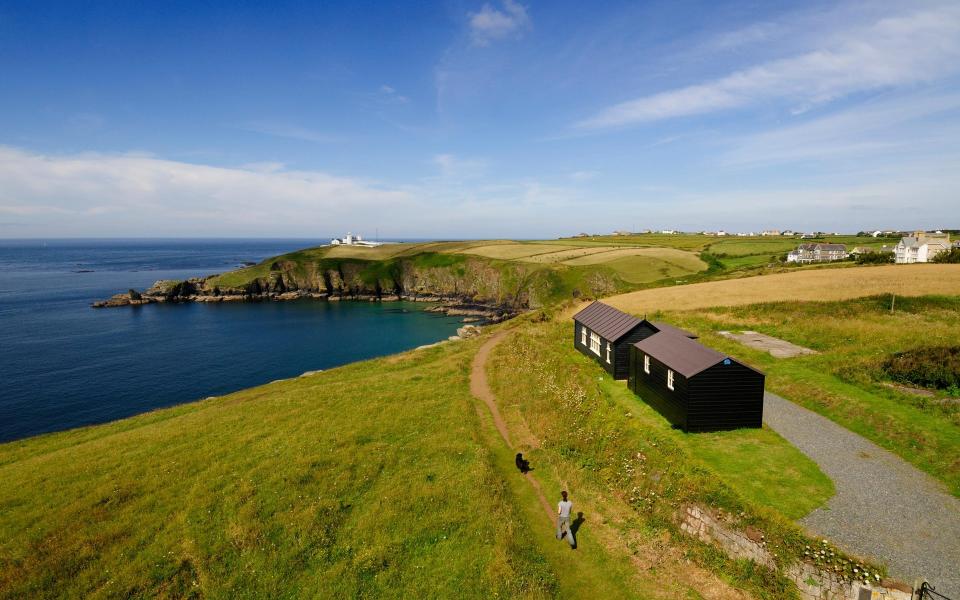
Rose Castle Cottage, Tarn Hows, Cumbria
A two-bedroom, wind-weathered property on a desolate slice of Cumbrian moor, Rose Castle Cottage is perched above the beautiful Tarn Hows area of the Lake District. There’s no television or mobile reception and your only neighbours will be the rare Belted Galloway cattle munching their way across the moor. A circular hiking trail starts from outside the cottage, and another footpath leads to Coniston Water’s Monk Coniston jetty – the departure point for lake tours on the beautiful, National Trust-owned Steam Yacht Gondola.
See nationaltrust.org.uk/holidays/rose-castle-cottage-lake-district
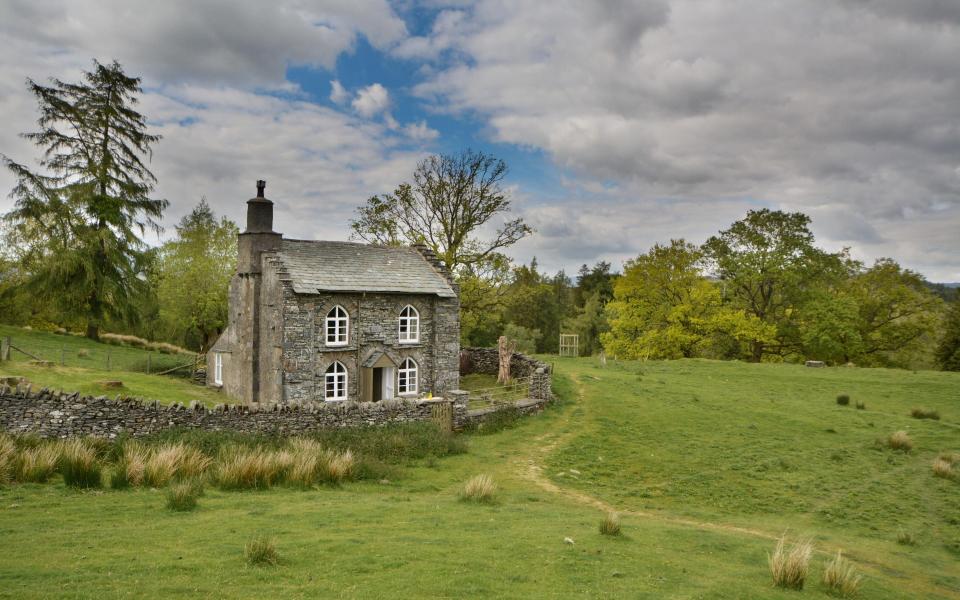
Wood Cottage, Falmouth, Cornwall
A thatched house metres from the Helford River, the Tardis-like Wood Cottage was once an apple store. It’s ideal for romantic getaways, with one double bedroom and a surprisingly spacious living area overlooking the river. The nearest village is Durgan, with its handful of weathered fisherman’s cottages and small, sheltered beach. You’ll have easy access to the South West Coast Path – head in the direction of Falmouth and you’ll pass Rosemullion, with its dramatic headland topped with the ruins of an Iron Age castle. Get lucky and you’ll spot one of the Cornwall’s blubbery seals splashing in the water below.
See nationaltrust.org.uk/holidays/wood-cottage-cornwall
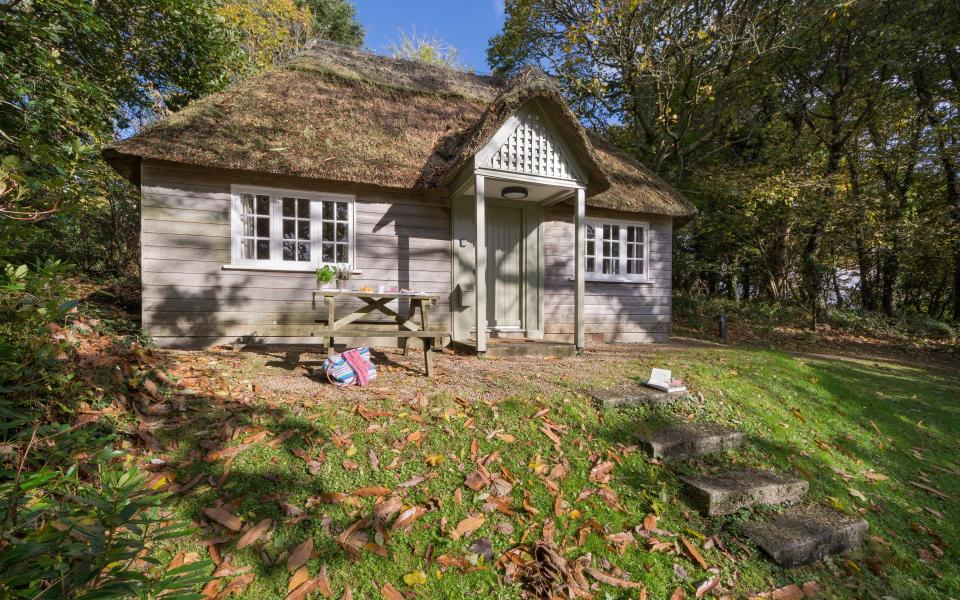
Gordon’s Cabin, Woolacombe, Devon
No, we don’t know who Gordon is (or was) but this ancient linhay (a stone farm building common in Devon and Cornwall) offers the best of both worlds – it feels wonderfully remote, with horizon-stretching views over North Devon’s rugged coastline, but you’ll be a short walk from the tiny village of Mortehoe, with its 13th-century church and wonky-roofed pub. Despite its heritage (black and white photos unearthed by the National Trust show a horse-drawn cart trundling past the cabin in the 1800s), the property has been given a thoroughly modern makeover – highlights include the beautiful breakfast bar and the sculpture-like armchair from which you can soak up the ocean views.
See nationaltrust.org.uk/holidays/gordons-cabin-devon
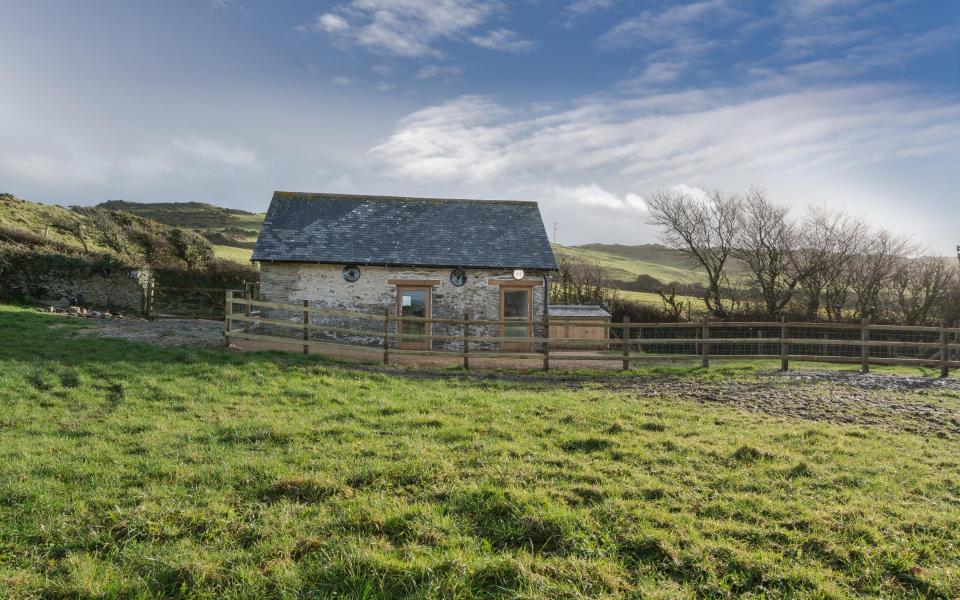
Woodlands Cottage, Handcross, West Sussex
This dolls’ house-like holiday home was built in 1868 as a game keepers’ dwelling, and you’ll find it in deep in the woods of the Nymans Estate, known for its towering redwoods and black poplars. There’s plenty of wildlife to spot, whether it’s the bats which flit between the trees which the encircle the cottage, or the estate’s deer, stoats, foxes and badgers. Woodlands has two bedrooms (one double and one twin) and direct access to the maze of walking trails which fan out across the estate, looping around eerie sandstone outcroppings and around the nearby lake. Follow the footpath to the main house to wander through its sprawling gardens, designed with autumn in mind – bursts of colour are provided by heathers, camellias and red oaks, planted by the estate’s owners in the 1890s.
See nationaltrust.org.uk/holidays/woodlands-cottage-sussex
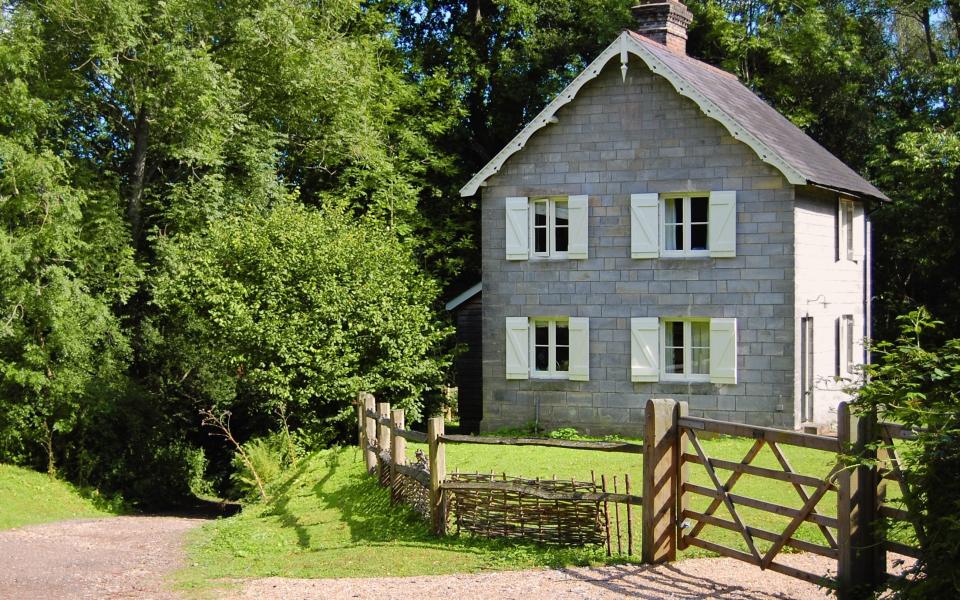
The Canyack, Penzance, Cornwall
This coastal retreat in the remote Cot Valley was built as accommodation for miners who worked here in the late 1800s, but a top-to-toe renovation has transformed this secluded one-bedroom property into the ultimate autumn idyll. You’ll be surrounded by Cornwall’s brilliantly barren best bits, in the heart of the Unesco-listed Tin Coast with its eerie ghost town-like reminders of the county’s once-thriving mining industry, and just a short walk from endless stretches of mist-shrouded moorland. Don’t be surprised if certain areas look familiar – parts of Poldark were filmed nearby.
See nationaltrust.org.uk/holidays/the-canyack-cornwall
See our guide to the best hotels in England


